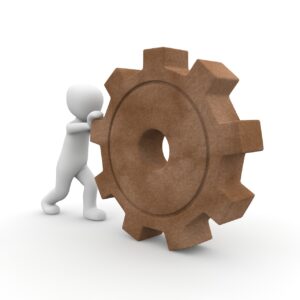So, if you have been reading this blog for a while, you know that exercise is a point of emphasis. Engaging in it properly is integral to your long-term health. More broadly, people’s worldviews are not a matter of if they will have a God, but which God; the same principle stands here. It is not a question of if you will exercise, but how will you exercise. When I choose to say nothing, I am, by default, still signaling a message. The same goes for your overall body movement habits (or lack thereof).
As such, make sure you are finding time to properly exercise consistently, especially if you do not work with your hands much. For those of you who have taken this up or plan to, you will experience something that is part of the human condition: muscle burn! But what is this exactly?
Contrary to popular belief, it may very well be an accumulation of protons leading to the burn and not the buildup of lactic acid. Proton accumulation can lead to a buildup of acidity, which gives rise to the burning feeling that you experience. This takes place while the body is employing the anaerobic glycolytic energy system. As the amount of protons (H+ ions) gets bigger, pH levels will decrease. As such, fatigue is an invaluable defense mechanism employed by the body to prevent severe damage (you need ATP to cause actin and myosin to unbind and for the muscle to return to resting length). Fatigue also protects against too much or long-term acidity (1). All of this points to the importance of the difference between a causal relationship and a correlational relationship since, although lactic acid is present, it may not be what is causing the muscle burning sensation.
“IT IS NOT A QUESTION OF IF YOU WILL EXERCISE, BUT HOW YOU WILL EXERCISE.”
In light of this, a summarized muscle-burning and building process is as follows:
Microtears/microtrauma (proton accumulation) –> inflammation –> signaling of nociceptors –> pain/soreness –> repetition/consistency –> adaptations

Remember, there is purpose in all that you go through. Even muscle burning serves a purpose that exceeds our initial understanding (it is for our benefit). When investigating such a question as this, it is important to recognize that while there may be physiological answers, there are answers that are transcendent as well. Sure, we can know how certain bodily processes work mechanistically. Yet, knowing how those processes come to fruition in real time while doing a million other things is beyond our comprehension. God has given us logic, sound minds, and He also gives us the capacities for trust and humility (2 Timothy 1:7, and Proverbs 3:5-6, and 1 Peter 5:6-7). We must honor them all.
